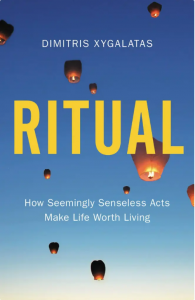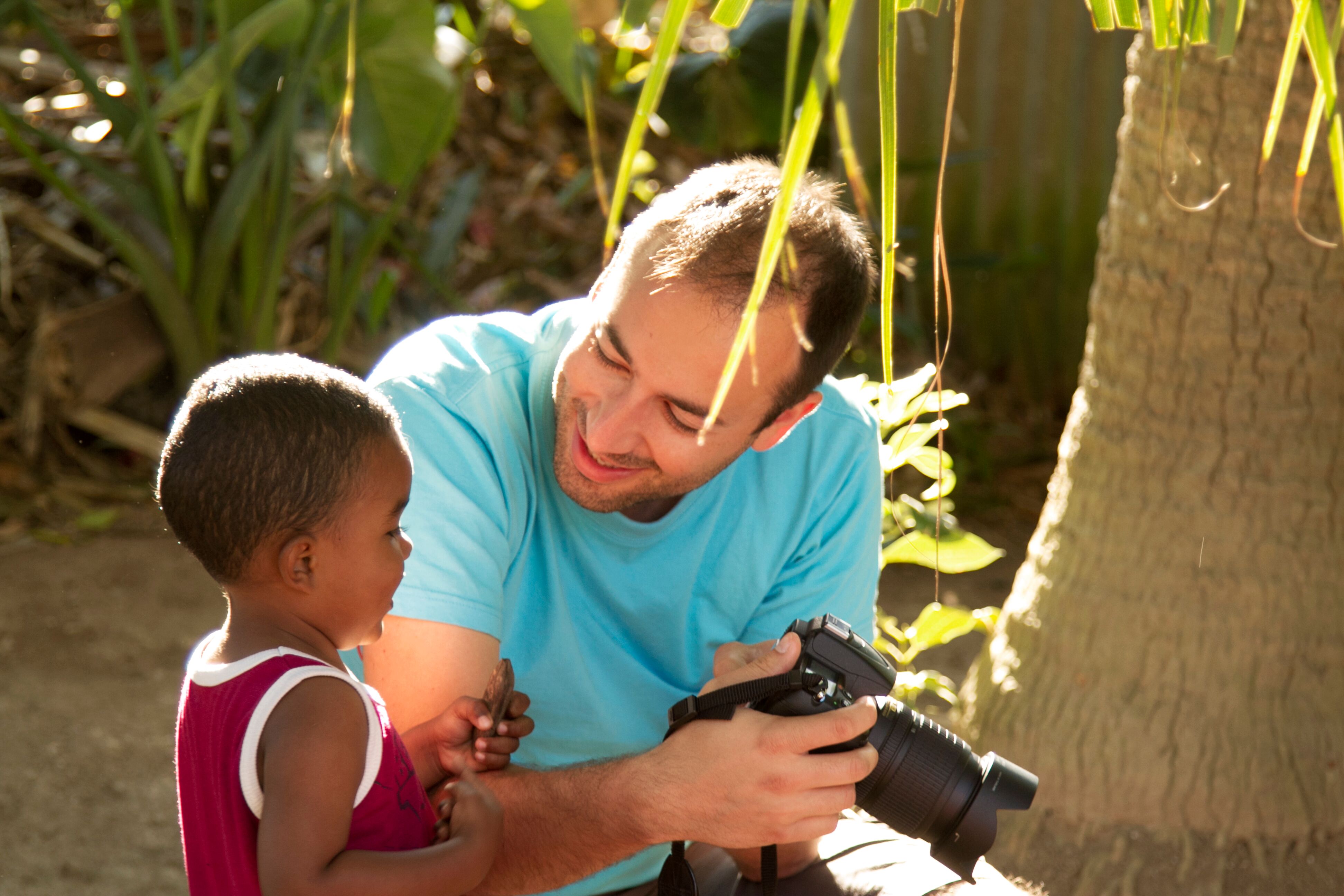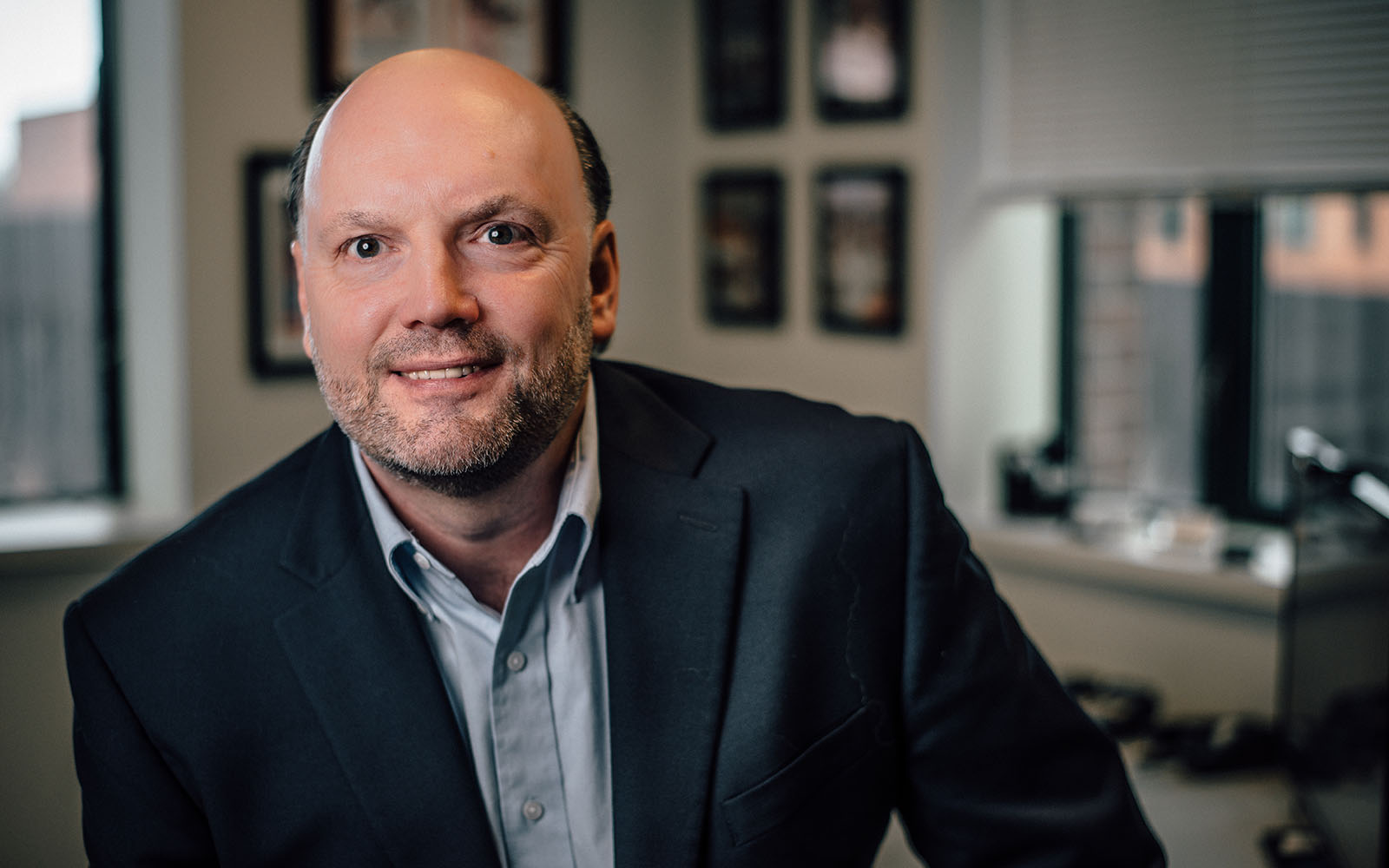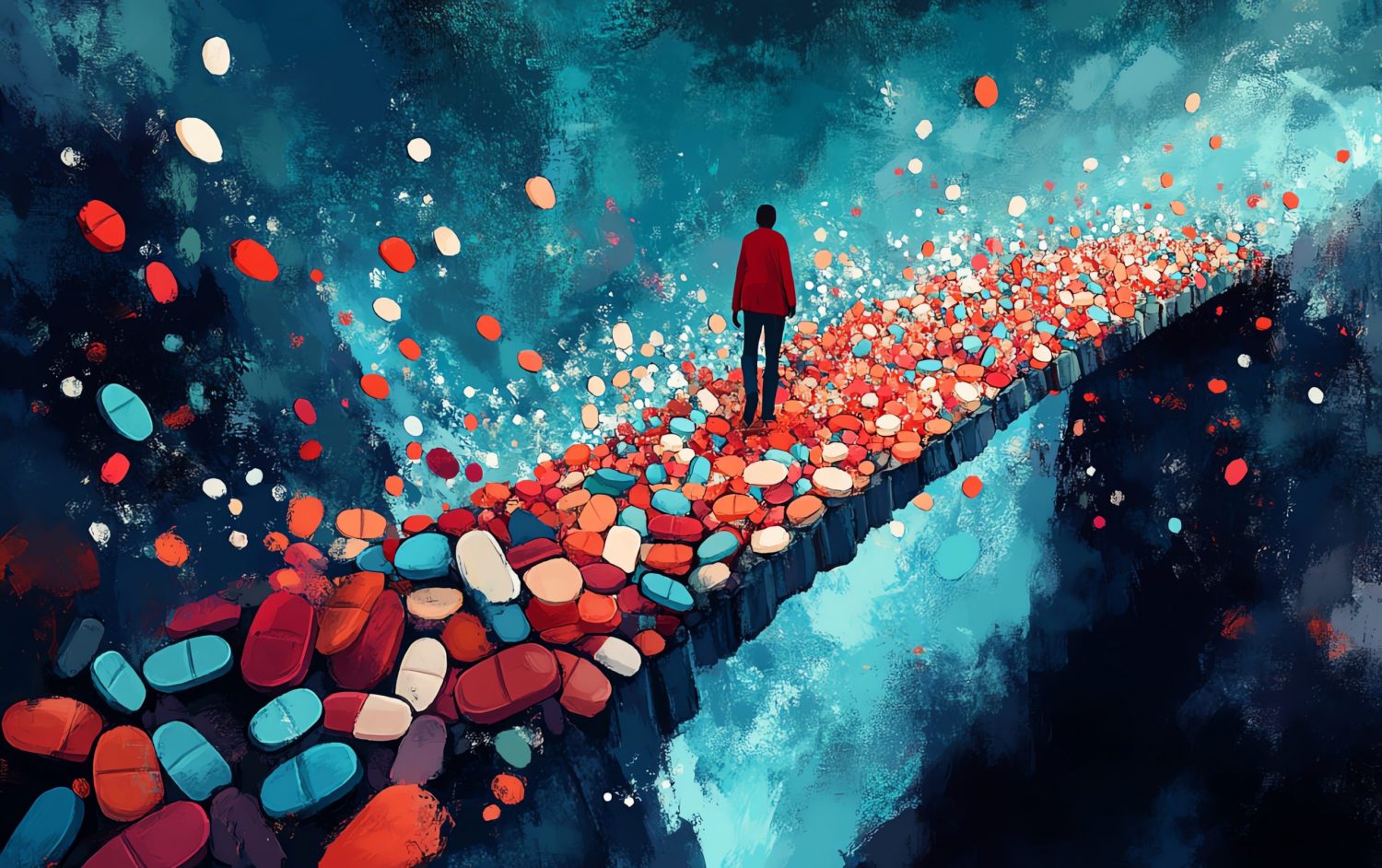University of Connecticut associate professor of anthropology Dimitris Xygalatas will be in the international spotlight the week of February 26 as his book “Ritual” will be featured as the “Book of the Week” by BBC Radio 4. Readings of select parts of the book will be offered by the BBC each day. The British broadcaster features a different book each week in this series, usually a work of non-fiction.
“Ritual: How Seemingly Senseless Acts Make Life Worth Living” was published in 2022. Xygalatas draws on events such as birthday parties, coronations, silent prayer, fire walks, rites of passage, and sporting events to reveal the deep and subtle mechanisms that bind people together.
UConn Today caught up with Xygalatas last week in his Beach Hall office to talk about what it means to be featured on the BCC and the topic of rituals in general.
How did it come about that the BBC decided to feature your book?
My publisher notified me that it was going to happen, and I suspect it was because the book was nominated for an award by The British Academy. I didn’t get the award – there were about 200 nominees – but there was a very nice event in London I went to, so I received some exposure in the UK. Shortly after that, I was notified the BBC had chosen it for a Book of the Week. They got in touch with me because the translation department wanted to know how to pronounce my last name!

It’s been really wonderful to see all the different media coverage that book has received, but the BBC is particularly important to me because as a child growing up in Greece there were very few international media outlets available. We had a couple of TV stations, but this was before cable TV and the internet was widely available in Greece. I was fascinated with all those BBC programs with David Attenborough (a biologist) and Jane Goodall (a noted primatologist and anthropologist). Jane Goodall ended up providing a cover endorsement for this book, which was very meaningful to me as well.
How did you originally get interested in anthropology and rituals?
Like I mentioned, I grew up in Greece before the internet, and my introduction to the world of anthropology was through the pages of National Geographic. It was fascinating to read about exotic rituals and initiation ceremonies in Africa and the Amazon. But the biggest revelation to me was the day I saw a story about pilgrims on the island of Tinos, in the Aegean Sea, where people from all over Greece would go to see a miracle-working icon in the local church. They arrived by crawling on their hands and knees in the middle of the summer. People would faint on their way there and you would see old ladies all bloodied and bruised.
It was at this time I talked to my grandfather about this, and I describe this in the first chapter of the book. I asked him if he was familiar with Tinos and he started naming people from his village, and people I knew, that had taken part in this. It was then I had this realization for the first time about something that appears to be so bizarre and exotic from really far away is not that different from the things that people do in your own culture. Once I started thinking about things through this lens, I saw ritual everywhere.
It was 15 miles from where I grew up that people were engaging in fire-walking ceremonies. All of a sudden, things I was brought up doing going to church did not seem very different. All rituals involve the same thing – they are activities that an outsider might think are utterly bizarre, but to insiders they are utterly meaningful. So that became my question – how do people find meaning in those things that to others, including me, seem to be meaningless?
The Super Bowl just ended, and March Madness is right on the horizon. Where do sports and fandom fit in the area of rituals?
Sports is something I write quite a bit about in the book and is something of personal interest. I still follow my home team in Greece, PAOK Thessaloniki, in football, real football. From an anthropological perspective, gatherings at games fulfill some of the same needs as religious rituals do, and that is why many people draw a parallel between sports and religion.
When people get together in large numbers, when they congregate to engage in something that is very scripted and emotional, it creates a sense of belonging. That is something we study experimentally, and I have done some of my research on UConn fans. We did studies where we follow these fans for an entire year, and we looked at their physiological reactions and their emotional reactions. We see that when fans go to arenas and stadiums in person, it’s a fundamentally different experience than watching it on TV. Their heart rates and emotional reactions synchronize in the same manner we see happening in religious ceremonies. The more they synchronize, the more meaningful the experience of the game is for them and the more bonded they feel.
How do the rituals of a university campus fit into your studies and thoughts?
This is something uniquely North American; there is nothing like it in Europe. Universities in Europe have sports teams to the extent that they are more like amateur clubs. American universities have been smart in harnessing the way identity is built, because they want to build a strong alumni base. In order to do that, there are common insignias, flags, and symbols, like the Husky, to use in ceremonies. Graduation ceremonies are much more elaborate here in the United States than most places in Europe.
When members of a university come together, it is often to partake in ritualized interactions. What is fundamental about the sporting phenomenon is not so much about what is happening in the game, but about the interaction between the fans and how all these people are at the same event at the same time and experiencing the same emotions. That really contributes to bonding and shaping their collective identity.
Where do rituals fit in with organized religion?
Rituals are a primordial part of human nature, and it predates religion. Our ancestors came together around the campfire and they danced together. As religious membership is declining in many parts of the West, our need for rituals still remains the same. So, what you see instead is people turning to different forms of collective ritual expression. People are more likely now to participate in sporting events or musical concerts. There are New Age rituals like yoga and meditation. This really points to a very human need for rituals. Religion or non-religion, rituals will be still here in the future. We crave ritual based on our very nature.



